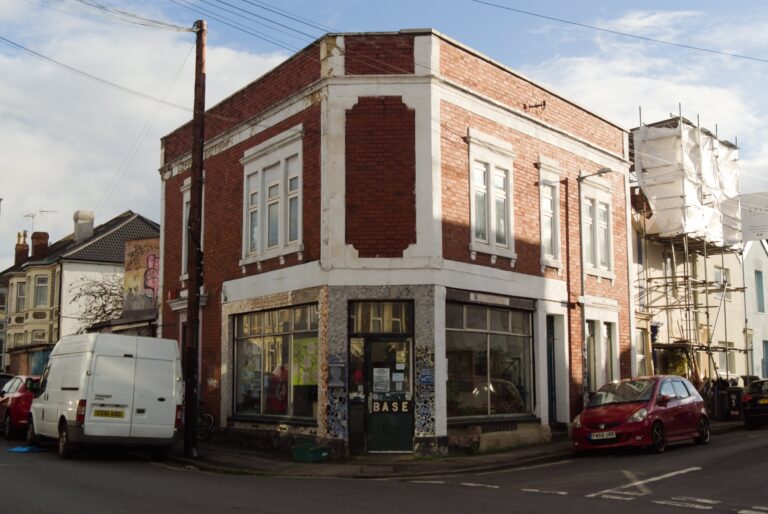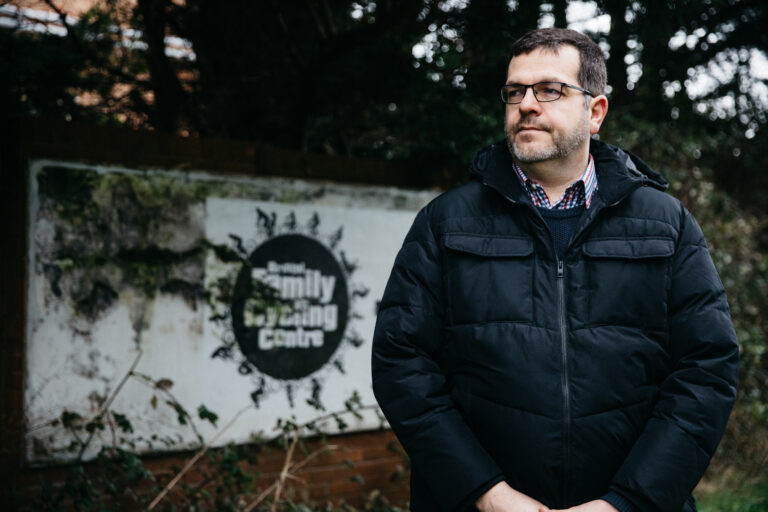Bristol renters descend on Westminster to demand greater rights and protections

Photo: ACORN
Hundreds of renters from Bristol and the rest of the country have travelled to Westminster to demand much-needed government reform to the private rented sector that was first promised four years ago. Organisers described it as “the biggest political action ever taken by private renters in the UK “.
The headline move to scrap no-fault section 21 evictions was first announced by then prime minister Theresa May in 2019. But renters, who make up roughly a third of Bristol households, are still waiting for greater rights and protections.
Since then at least 600 Bristol renters have been serviced with section 21 notices. Among them were a south Bristol woman facing eviction by the Catholic Diocese of Cliton, a group of tenants being turfed out just before Christmas to hand over their home to a local charity, and a single mum being forced to leave her home after her agency found out she’d broken up with her partner.
The government finally published a white paper setting out the reforms last summer, which was cautiously welcomed by local campaigners and politicians. But chaos in Westminster and six different housing ministers in the course of the year has stalled the law actually making it to parliament.
This is why more than 300 private tenants met with their MPs and marched to Downing St today (21 March) to call on the government to introduce the long overdue Renters Reform Bill as part the Renters Day of Action. Organisers the Renters Reform Coalition have also revealed that 100,000 households across the country have been put at risk of homelessness since the reforms were first announced.
Tom Darling, campaign manager at the Renters’ Reform Coalition, said: “These shocking homelessness figures show just how bad the renting crisis has got for England’s 11 million private renters. It is no wonder so many are coming to London tomorrow to demand change.
“Every day that the government continues to put off delivering long awaited promises to scrap Section 21 evictions, is another day that a household may be forced onto the streets,” he added.
“There can be no more costly delays. The government must listen to our pleas and immediately introduce a Renters’ Reform Bill that gives everyone the right to a safe, secure and affordable home.”
Campaign groups and their members will meet with MPs, hand a petition to the government and grill the new housing minister Rachel Maclean on details of the upcoming legislation.
Devil in the detail: what are the reforms going to be?
Beyond banning section 21 evictions, the government’s proposals include enforcing the same standards as in social housing, outlawing blanket bans by landlords on people claiming benefits, establishing a new ombudsman to resolve disputes, and introducing a property portal that will create a national register of landlords.
Community union ACORN will be part of the delegation, including 170 members from different parts of the country. Anny Cullum, ACORN’s policy officer, told the Cable the priorities of the reforms were closing loopholes in the no-fault eviction ban, ensuring homes are in decent and safe condition, a national landlord register, reducing notice periods and ending discrimination by landlords and agents.
“Section 21 is going to be scrapped, but how you do it is really important,” she said. “In 2017 they ended it in Scotland and we’ve tried to learn from that.” She said there were examples in Scotland where tenants were evicted using the grounds that a landlord is selling or moving in, but later found the house being rented out a few months later.
According to last summer’s government white paper, landlords will be able to evict tenants if they want to sell up, move in themselves or rent to a family member. But Cullum said it’s vital to close any loopholes that would allow landlords to just re-let the property to other tenants at a later date.
According to Cullum, these loopholes could be closed by extending the period after which they can rent out the property again from three months to 12, requiring landlords to swear in court their intention to sell or move in themselves, and only be able to use these eviction grounds after a year instead of six months. The notice period should also be four months not two, she added, in order to reduce stress for the tenants.
“We’re also fighting for things that make homes decent and safe.”
The government said it would introduce a Decent Homes Standard, which already exists in the social housing sector. It would be a criminal offence to rent out homes that don’t meet the standard.
The standards should also apply to all tenants rather than just vulnerable ones, Cullum added, to avoid creating extra requirements for landlords renting to vulnerable people, which could lead to discrimination.
“We need to make sure local authorities are properly resourced to enforce any new changes,” Cullum said. “At the movement, they can only deal with the most extreme cases, so landlords can get away with things.”
She said another key demand is a national register that landlords have to sign up to in order to rent out properties. It would allow tenants to check the property, find out key information about the landlord, and ensure the property has key safety certificates.
Cullum added that open ended tenancies should replace fixed term ones, to allow people to feel settled in their local area but also not be trapped in unsuitable tenancies.
ACORN are also calling for ways to stamp out discrimination. “The white paper talks about a blanket ban on discriminating against people on benefits or low incomes,” Cullum said. “But we would like to see a cap on how much rent is asked for up front.”
The community union have recently been campaigning against bidding wars on rental properties, which the Cable has also found to be common, and Cullum said asking for up to six months in rent upfront shuts out tenants on lower incomes. Another way to prevent discrimination, she said, would be to end Right to Rent, where landlords are required to check the immigration status of their tenants.
The draft legislation is expected to be published in the next few months.















Report a comment. Comments are moderated according to our Comment Policy.